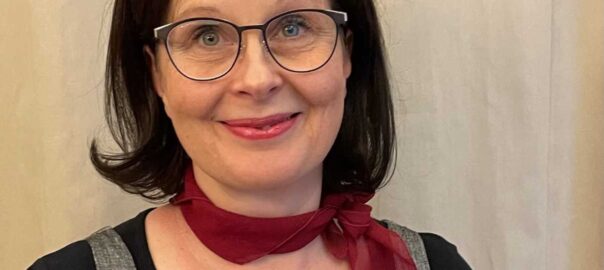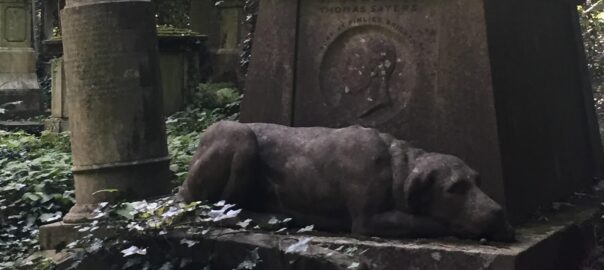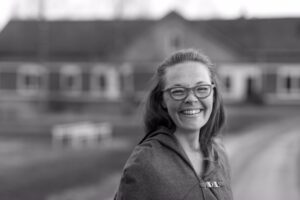Av Ilona Silvola, doktorand i systematisk teologi
Många asylsökande har konverterat till kristendom i Finland. Trovärdigheten för deras konvertering bedöms av Migrationsverket för att ta reda på om konverteringen kan äventyra sökanden i deras ursprungsland. Trovärdighetsbedömningen bygger dock på en snäv syn på religion som fenomen, och andra typer av religionsyttringar, exempelvis betoningen på gemenskap, anses inte vara genuina. Religion i asylprocessen bör förstås bredare än som en privat andlig övertygelse. Dessutom borde asylprocessen fokusera starkare på bedömningen av hotet om förföljelse.
Många av de asylsökande som anlände till Finland 2015 har konverterat från islam till kristendom under asylprocessen. Konvertering till en annan religion under asylprocessen är inget nytt fenomen internationellt, men i Finland har en så omfattande konvertering av asylsökande aldrig tidigare skett. Det finns inte någon information om konvertiternas exakta antal, men bland de asylansökningar som för tillfället är under process åberopas religiös konvertering som ett asylskäl i cirka 500 av dessa. (Juusela, ”Noin viisisataa kristityksi kääntynyttä ” 15.1.2021). Beviljandet av flyktingstatus sig på hotet om förföljelse. I asylprocessen bedöms ifall en person löper risk för förföljelse i sitt ursprungsland, i detta fall på grund av sin nya religion. Bedömningen är naturligtvis utmanande i en situation där personen inte ännu har varit kristen i sitt ursprungsland. I denna situation betonar Migrationsverket (Migri) konverteringens genuinitet: om konverteringen bedöms vara genuin kan också hotet om förföljelse i ursprungslandet vara reell. Dock är det ett allvarligt problem ifall Migri inte bedömer asylsökandes konvertering som genuin och avvisar personen till sitt ursprungsland, där förföljaren identifierar personen som tillhörande en förföljd grupp, och att personen därmed utsätts för fara.
I offentligheten har det förts debatt om huruvida de konverterades asylprocess är rättvis. Flera kyrkliga rörelser har vid flera tillfällen uttryckt oro för att Migri inte tror på att konverteringen är genuin, även om den skulle vara tydligt autentisk för asylsökandes närstående personer och församling.
Bland annat har representanter för de största kyrkliga samfunden samt Suomen Evankelinen Allianssi (SEA) krävt att Migri borde ge större vikt åt församlingarnas utlåtanden (Suomen kirkonjohtajat, ”Turvapaikanhakijoiden palautuskieltoa”; SEA, ”Vetoomus”). Även Ekumeniska Rådet i Finland rekommenderar samma sak, och de har även förordat att Migri borde satsa på ytterligare utbildning i religiös läskunnighet. För att nyanserna i den asylsökandes berättelser och i dennes religiösa tänkande skulle förmedlas till intervjuaren, har SEA även yrkat på att förbättra kvalitén på tolkningen (SEA, ”Vetoomus”).
Migri har svarat på kritiken bland annat genom att säga att tolkarna har en ordlista över kristendomens begrepp till sitt förfogande. När det gäller församlingarnas utlåtanden har Migri hänvisat till FN:s flyktingorganisation UNHCR:s riktlinjer, enligt vilka församlingens utlåtanden inte kan vara avgörande bevis vid bedömningen av konverteringen, utan den största tyngden bör ligga på asylsökandes egen berättelse.
En formell eller genuin religiös konvertering?
I min doktorsavhandling undersöker jag kristna konvertiters asylprocesser. Jag analyserar bland annat negativa asylbeslut från en teologisk synvinkel. Positiva beslut är väldigt sparsamt motiverade, så en komparativ analys är omöjlig på basen av beslutsdokumenten. Mina forskningsresultat visar att ett stort problem i asylprocessen är Migris och asylsökandes avvikande syn på kristendomen som fenomen.
I negativa asylbeslut hävdar Migri generellt att den sökande inte anses vara en övertygad kristen. I dessa situationer har sökanden ofta länge deltagit i kyrkans verksamhet och har döpts. I asylbesluten uppfattas dock dopet endast som en formell händelse, och ett ”formellt dop i sig är inte en tillräcklig redogörelse för en genuin konvertering till kristendomen” såsom Migri formulerar det. Så hur borde en äkta konvertering se ut enligt Migri? Då skulle personen ha en kristen övertygelse, som enligt Migri borde vara en ”andlig”, ”permanent”, ”livsförändring som transformerar ens identitet” och ”en samvetsfråga och en andlig livsstil.” Alla citaten ovan är hämtade ur negativa beslut som motiverar varför genuiniteten i asylsökandes konvertering misstros. I dessa beslut har Migri varit övertygad av den sökandes berättelse så till vida att informationen om deltagande i församlingslivet, dop och andra religiösa aktiviteter har allt bedömts vara sant. Föremål för bedömningen är alltså huruvida de ovannämnda religiösa handlingarna grundar sig på en genuin inre övertygelse.
Vad innebär en genuin konvertering?
Den grundläggande frågan vid bedömningen av konverteringens genuinitet är vad fenomenet religion är. Manifesterar religion sig framför allt som en inre tro, och är tillhörighet till ett religiöst samfund och utövandet av en religion därför bara religionens sekundära konsekvenser?
Migris asylutredning bygger bland annat på UNHCR:s vägledning om behandling av ansökningar med religion som asylskäl. Enligt riktlinjerna kan ”asylansökningar som baserar sig på religion innehålla ”en eller flera” av följande dimensioner av religion (dimensions of religion) (UNHCR, ”Riktlinjer nr 6”, par. 5, kursiv av författaren). Den första dimensionen är religion som tro (religion as belief). I detta fall är religionens centrum personens tro eller värderingar om det gudomliga. Den andra dimensionen är religion som identitet (religion as identity), som manifesterar sig genom grupptillhörighet. Gruppen förenas av en gemensam tro, gemensamma traditioner eller ritualer. För det tredje kan religion vara ett levnadssätt (religion as a way of life) som kan synas genom hur man klär sig, följer religiösa seder och firar fester. I centrum av religionen är då seder och handlingar som är identitetsskapande för religionen. (UNHCR, ”Riktlinjer nr 6”, par. 6-8).
UNHCR sätter således inte tron framför andra manifestationer av religion, utan förstår gruppmedlemskap såväl som livsstil som lika legitima delar av religion. Migri verkar dock inte göra det fullt ut då de konstaterar bl.a följande:
”Baserat på din berättelse är ditt intresse för kristendomen mycket mer kopplat till hur du upplever att de kristna beter sig i gemenskap än till den andliga eller teologiska aspekten av kristendom.” (Irak 3/2017)
”Du har inte kunnat berätta något annat än att alla i kyrkan är en familj och en gemenskap — Baserat på det som du har berättat anser Migrationsverket att du sökte dig till kyrkan för att uppleva gemenskap.” (Somalia 12/2017)
”Det som du har berättat angående förändringarna i ditt dagliga liv och närvaron av kristendom i ditt liv har varit ytlig och har inte återspeglat en verklig förändring av din övertygelse. Att gå i kyrkan är socialt viktigt för dig. ” (Irak 6/2018)
Det är problematiskt att Migri kräver i asylprocessen en specifik ”kristen övertygelse.” Detta representerar en förståelse av religion som ett privat fenomen, vars kärna är individens tankar och känslor om kristendomens doktriner, vilka återspeglas i personens handlingar.
Religionens natur kan ändå förstås annorlunda utifrån UNHCR:s riktlinjer: religionens kärna kan vara handling, eller tillhörighet ett religiöst samfund. En äkta religiös identitet bygger då på att man tillhör ett religiöst samfund, eller att man lever enligt ett religiöst levnadssätt. Individens reflektioner och känslor om religionens läror är då sekundära.
Från genuinitetsbedömning till bedömning av förföljelse
UNHCR: s riktlinjer betonar att det är viktigt att utreda de omständigheter i vilka konverteringen har ägt rum samt konverteringens genuinitet i situationer där den asylsökande har konverterat efter att ha flytt från ursprungslandet. Genom att betona den religiösa reflektionen verkar Migri vilja försäkra sig om att konverteringen inte är falsk. Problemet kan dock inte lösas genom att betona djupgående andlig reflektion. Reflektion kan vara oäkta, medan religiös utövning, även utan grundlig andlig reflektion, kan vara genuin.
De negativa asylbesluten som jag analyserat slutar beklagligt ofta med konstaterandet att personen i fråga inte kan vara i fara i sitt ursprungsland eftersom personens konvertering inte är trovärdig. Om religion som fenomen skulle anses innefatta, inte bara tron, utan även grupptillhörighet och ett religiöst levnadssätt, skulle Migris slutsats gällande många asylsökande som konverterat vara annorlunda.
En tillförlitlig bedömning av konverteringens genuinitet är dock svårt, även om religion skulle uppfattas i en vid bemärkelse såsom UNHCR gör. På grund av denna svårighet borde kärnan i asylprocessen inte vara att fullständigt försäkra sig om konversionens genuinitet, utan att bedöma risken för förföljelse: Om asylsökandes situation ses ”med förföljares ögon” framstår personen som kristen (Kagan, ”Refugee Credibility Assessment”, 1222–1223)? Om så är fallet så riskerar personen att bli förföljd. Principen om utvisningsförbud, som finns inskriven i Finlands grundlag, beordrar att ”en utlänning får inte utvisas, utlämnas eller återsändas, om han eller hon till följd härav riskerar dödsstraff, tortyr eller någon annan behandling som kränker människovärdet.” (Finlands grundlag, kapitel 2, 9§)
I slutändan handlar asylprocessen inte om huruvida konverteringen är genuin enligt Migri, utan om personen kan vara i fara i sitt ursprungsland. Risken för förföljelse påverkas av hur religion betraktas i asylsökandes ursprungsland och hur sökanden själv uppfattar sin religion. Om till exempel kyrkogång och tillhörandet av en kristen gemenskap utgör kärnan i den sökandes syn på religion, borde inte Migri förbigå dessa med motiveringen att de enbart är att uppfatta som ett sökande efter social gemenskap. Att en förföljelse i ursprungslandet utlöses, beror inte enbart på personens teologiskt motiverade kristna tro. Förföljelse bygger på förföljarens uppfattning om att personen tillhör en förföljd grupp.
Inlägget har tidigare publicerats på finska hos Liikkeessä yli rajojen.
Skribenten vill tacka TM, doktorand Niklas Antonsson för hjälp med den svenska översättningen av texten.
KÄLLOR:
Juusela, Pauli. 2021. ”Noin viisisataa kristityksi kääntynyttä turvapaikanhakijaa odottaa yhä ratkaisua hakemukseensa – kirkkojen mukaan moni palautettu piileskelee kotimaassaan vainoajia.” Kirkko ja Kaupunki, 15.1.2021. https://www.kirkkojakaupunki.fi/-/noin-500-%20kristityksi-kaantynytta-turvapaikanhakijaa-odottaa-yha-hakemuksensa-ratkaisua-kirkkojen%20mukaan-moni-palautettu-piileskelee-vainoajia-kotimaissaan#aafe8c55
Kagan, Michael. “Refugee Credibility Assessment and the “Religious Imposter” Problem: A Case Study of Eritrean Pentecostal Claims in Egypt.” Vanderbilt Journal of Transnational Law 43, no. 5 (2010): 1179.
UNHCR. “Guidelines on International Protection No. 6: Religion-Based Refugee Claims under Article 1A(2) of the 1951 Convention and/or the 1967 Protocol relating to the Status of Refugees.” https://www.unhcr.org/publications/legal/40d8427a4/guidelines%20internationalprotection-6-religion-based-refugee-claims-under.html
SEA (Suomen Ekumeeninen Allianssi). ”Vetoomus oikeusvaltioperiaatteen toteutumiseksi.” Publicerad 4.1.2021. https://www.suomenevankelinenallianssi.fi/vetoomus%20oikeusvaltioperiaatteen-toteutumiseksi/
Suomen kirkonjohtajat. ”Turvapaikanhakijoiden palautuskieltoa ja uskonnonvapautta on kunnioitettava.” Publicerad 22.8.2019. https://www.ekumenia.fi/etusivu/ajankohtaista_-_aktuellt/suomen_kirkonjohtajat_turvapaikanhakijoiden_palautuskieltoa_ja_uskonnonvapautta_on_kunnioitettava/
Finlands grundlag (11.6.1999/731). https://finlex.fi/sv/laki/ajantasa/1999/19990731#L2 Hämtad 21.10.2021.







